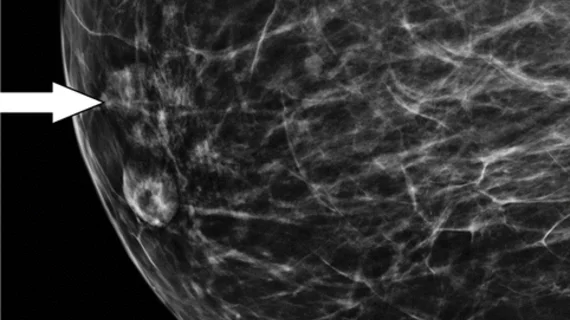Digital mammography increases breast cancer detection by 14%
Digital mammography was found to increase breast cancer detection rates by 14 percent and simultaneously did not increase recall rates, according to a new study published Dec. 11 in Radiology.
Compared to screen film mammography, researchers found digital mammography could more clearly depict calcifications, see through denser breast tissue and allowed the reader to adjust the actual image.
For the study, Rosalind M. Given-Wilson, from St. Georges University Hospitals NHS Foundation Trust in London, and colleagues evaluated the effect of digital mammography on 11.3 million mammograms from 80 breast screening facilities in the U.K. taken from the English National Health Service Breast Cancer Screening Program.
The researchers found the overall cancer detection rate was 14 percent greater with digital mammography, with higher detection of grade 1 and grade 2 invasive cancers.
For women aged 45 to 52, digital mammography increased overall detection rate by 19 percent and the higher sensitivity did not increase the recall rate.
“This improvement happened in the absence of other changes in the English screening program, such as a change in recall rate or introduction of computer-aided detection, so we can be clear that the increased rate of detection is due to the change in technology,” Given-Wilson said in a prepared statement.
Digital mammography also increased the detection of some types of cancer more than others, such as increasing detection of ductal carcinoma in situ at both first screens and subsequent screens, the researchers concluded.

